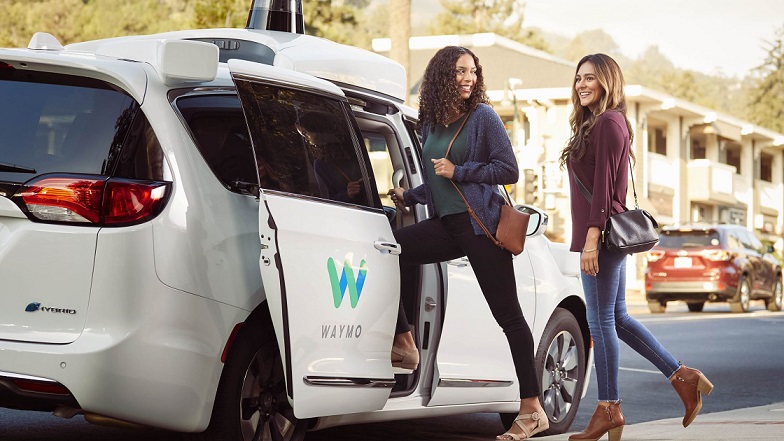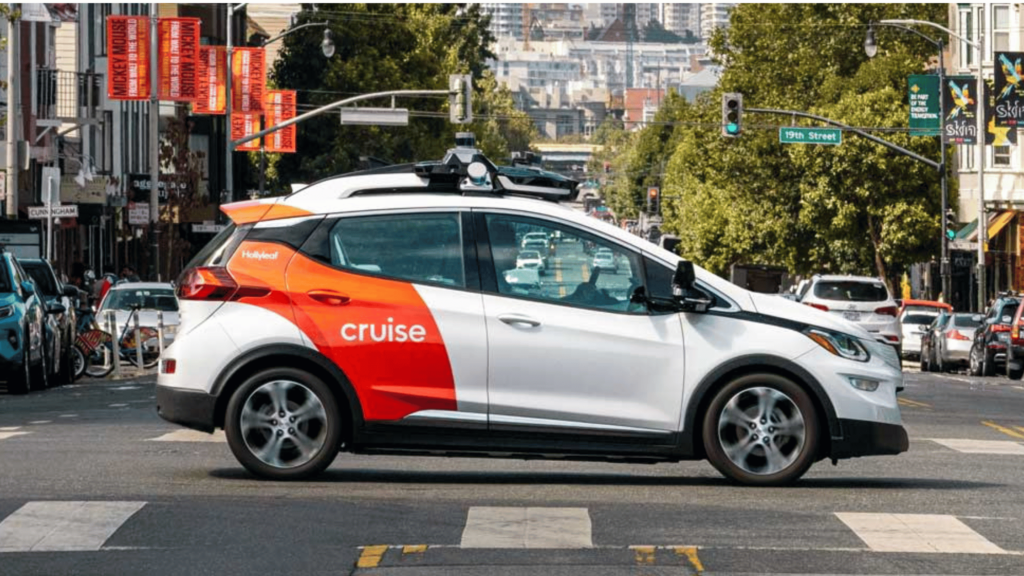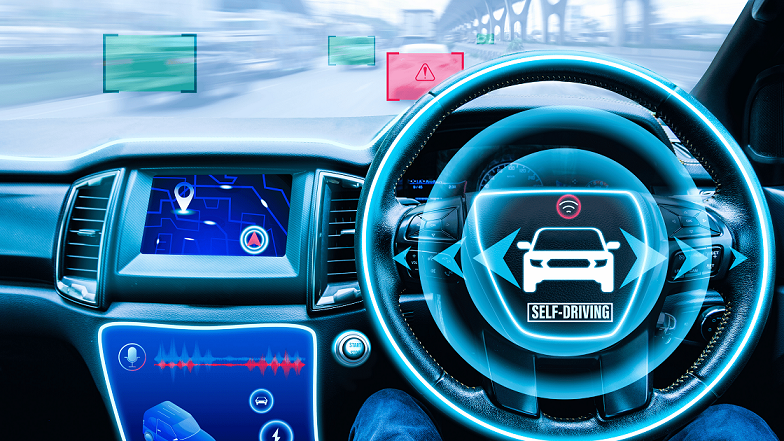“I stopped using rideshares after a driver made inappropriate comments about my appearance during a late-night ride. When I tried Waymo, I felt an immediate sense of relief. There was no driver to worry about—just me and the car.”
Samantha Davis, a 34-year-old nurse in Phoenix, shared her experience.
This sentiment is echoed by many women across the U.S., particularly those in metropolitan areas where driverless taxis are operational. According to a 2024 survey conducted by Waymo, 85% of female respondents cited the absence of a driver as a key reason for preferring autonomous taxis over rideshare services.
For many women in America, the shift to autonomous vehicles has been life-changing.
A report from the International Finance Corporation noted that many women would be more inclined to use ride-hailing services if they could select a female driver or if gender-segregated options were available. While driverless taxis do not offer gender-specific options, their inherent safety features may encourage more women to travel independently.
Safety is a top priority for women using transportation services. A study conducted by Pew Research in 2023 revealed that 65% of women in America felt unsafe taking rideshare services alone at night. Cases of harassment, uncomfortable encounters, and lack of proper recourse against rideshare drivers have compounded this anxiety.
In contrast, driverless taxis eliminate the human factor entirely. Without a driver present, women can enjoy a neutral environment. Companies like Waymo and Cruise have highlighted safety in their marketing.
As Waymo CEO Tekedra Mawakana said in a 2024 keynote:
“Autonomous vehicles are designed to make everyone feel safer, especially those who have historically felt vulnerable in traditional transit systems.”
Driverless vehicles are equipped with AI-powered surveillance systems that ensure passengers are monitored and safe throughout their journey. The assurance of a monitored ride makes them a preferred option for women.
Technology as a Trustworthy Ally
Women are increasingly tech-savvy and open to innovations that simplify life. Autonomous vehicles incorporate features like precise navigation, emergency response systems, and real-time ride tracking. These technological advancements instill trust in female passengers who value transparency and control during transit.
A 2024 Gallup survey showed that nearly 78% of women aged 25–45 believe that driverless technology reduces human error and makes rides safer. This belief has been bolstered by public demonstrations of self-driving technology’s safety features, such as advanced collision avoidance systems and automated emergency braking.
Harassment from Rideshare Drivers: A Pivotal Factor
One of the most significant reasons women are turning to driverless taxis is the persistent issue of harassment in traditional rideshare services. Despite efforts by companies like Uber and Lyft to address safety concerns, reports of inappropriate behavior by drivers remain alarmingly frequent.
A 2022 survey by Stop Street Harassment found that 38% of women in the United States reported experiencing harassment while using rideshare services, with incidents ranging from unsolicited comments to physical advances. These experiences not only cause immediate distress but also create long-term anxiety and distrust in rideshare systems.
23-year-old Abbey told NBC News that her conversation with a rideshare driver took a different turn. She said the driver kept saying she was going to be the perfect girlfriend for him. She further told her that he knew where she lived and worked. The incident was one of the many unnerving experiences that made Virgil wary of rideshare services. She’s now one of the many women in the U.S. embracing autonomous taxi services like Waymo, to avoid menacing rideshare drivers.
Veronica Pastore, a 40-year-old nonprofit employee, shared her experience of switching to Waymo’s driverless taxis after unsettling encounters with rideshare drivers. She stated,
“I’ve used it late at night and thought, ‘This is wonderful. I don’t need to fret about a stranger driving me home’”
While reported violence in Uber and Lyft is rare, some women are worried about behavior that doesn’t show up in company-issued transparency reports, such as unwelcome flirting and unsolicited conversations.
The Appeal of Driverless Taxis for Women
Autonomous taxis like those offered by Waymo eliminate the presence of a human driver altogether. This absence significantly reduces the potential for uncomfortable interactions and enhances feelings of safety among female passengers. Megan Neese, Waymo’s head of product and customer research, noted that surveys indicate female customers prioritize safe driving and personal safety more than their male counterparts. The ability to summon a vehicle without the unpredictability of human behavior provides a sense of security that many women find appealing.
The autonomous vehicle market is projected to grow substantially, with estimates suggesting it could reach over $93 billion by 2028. This growth reflects not only technological advancements but also changing consumer preferences. A significant portion of this growth is attributed to the increasing acceptance of driverless taxis among women.
Reduction of Discriminatory Practices
Traditional ride-hailing services often involve human drivers, which can lead to discriminatory practices based on gender or race. Research has shown that female passengers may face longer wait times or less favorable treatment compared to male passengers. For instance, a study conducted in Seattle revealed significant differences in service quality based on the race and gender of passengers, where white individuals were more likely to be picked up than their African American counterparts. In contrast, driverless taxis operate on algorithms that do not factor in the passenger’s identity, thereby eliminating biases related to race or gender.
By removing the human element from the equation, driverless taxis ensure that all passengers receive equal treatment regardless of their gender or background. This shift can help create a more equitable transportation environment where women feel safer and more respected during their travels.

Promoting Gender-Inclusive Policies
The rise of driverless taxis presents an opportunity for policymakers and transportation providers to adopt more gender-sensitive approaches in their planning and operations. Recognizing the unique needs of female passengers can help stakeholders develop strategies that promote inclusivity within the transport sector. This includes considering safety features, service availability during off-peak hours when women may need to travel, and ensuring that transportation networks are accessible to all users.
Engaging women in the design process of these policies ensures that their perspectives are considered, leading to solutions that genuinely meet their needs and potentially reduce gender-based discrimination in transportation.
Promoting Female Representation and Visibility
Supporting female autonomous vehicle consultants and public speakers in the automotive industry is a vital strategy for reducing gender-based discrimination in transportation. Amplifying women’s voices, expertise, and leadership in the industry can foster a more inclusive environment that encourages diversity and equity.
Women like Dr. Brandial Bright, founder of Fifth Level Consulting, exemplify how female leaders can influence the discourse around autonomous vehicles and smart mobility. Her experience working at Volvo, her research work on driverless technology, and her speaking engagements around AVs not only showcase her expertise but also inspire other women to pursue careers in this field.
Women consultants can advocate for policies that specifically address gender disparities in transportation. Their insights can help shape regulations that prioritize safety, accessibility, and affordability for female passengers. For example, discussions led by women in the automotive sector can focus on creating safer environments for women using driverless taxis, ensuring that services are designed with their needs in mind.
Uber and Lyft’s Partnership with Autonomous Vehicle Companies
Uber and Lyft have established partnerships with various autonomous vehicle companies like Waymo, Cruise, Motional, etc., a strategic move aimed at integrating self-driving technology into their ride-hailing platform. These collaborations not only enhance Uber and Lyft’s service offerings but also play a critical role in shaping the future of transportation—transportation safe enough for women, the disabled, and the elderly.
Conclusion
American women turning to driverless taxis over rideshare services reflects a societal shift prioritizing safety, convenience, and equality. With advanced features and a focus on user experience, autonomous taxis are paving the way for a more secure and inclusive transportation future for women.
As this market grows, stakeholders must continue addressing concerns and scaling operations to meet the diverse needs of their users. In the words of Cruise CEO Kyle Vogt, “The future of transportation isn’t just about technology; it’s about creating a world where everyone feels safe and valued.”
Also Read:
Autonomous Vehicle Roundup: Nov/Dec 2024
15 Key Things to Look for from New Robotaxi Players
Top 5 US Autonomous Vehicle Stocks You Should Buy in 2025
Autonomous Vehicle Vandalism: Waymo, Cruise Fighting Back

I’m Dr. Brandial Bright, also known as the AVangelist. As a dedicated and passionate researcher in autonomous and electric vehicles (AVs and EVs), my mission is to educate and raise awareness within the automotive industry. As the Founder and Managing Partner of Fifth Level Consulting, I promote the adoption and innovation of advanced vehicle technologies through speaking engagements, consulting, and research as we progress to level 5 fully autonomous vehicles.







